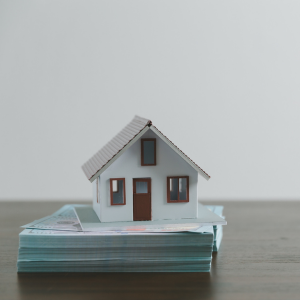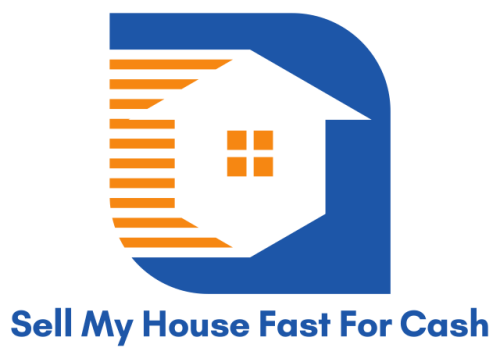
Are you worried about high closing expenses when buying a property in Washington? You have company. Many potential homeowners look for ways to save costs and make homeownership more reasonable. This post offers tips to avoid or lower closing expenses in Washington real estate deals. If you’re a first-time buyer or an experienced property investor, these tactics can save you money and make the process easier. Learn how to save money without sacrificing your new house.
Understanding Closing Costs in Washington
Washington homebuyers must grasp closing fees to manage real estate costs. Closing costs include fees and taxes required to buy a home. Loan size, home type, and local transfer taxes affect these costs in Washington. Understanding these costs can save purchasers a lot. The components of closing expenses and major distinctions for Washington homeowners are below. Understanding these factors makes real estate deals easier and cheaper.
What Do Closing Costs Include?
Closing costs refer to fees required at the end of a real estate transaction. Every homebuyer who wants to budget must understand these expenditures. Two to five percent of the home loan is normal. Appraisal fees verify the home’s market value and prevent lenders from overfunding a mortgage. Attorney expenses are essential for transferring ownership. Buyers must pay state-mandated recording fees to legally document their property purchase. Origination fees, which lenders charge for mortgage applications, are normally 0.5% to 1% of the loan amount.
First-time homebuyers typically ignore taxes, which affect closing expenses. The real estate excise tax, a percentage of the property’s selling price, is a major tax in Washington. Prepaid property taxes, which cover future taxes, also affect new homeowners. Closing fees may include mortgage insurance if the down payment is less than 20%. Homebuyers must carefully budget due to such large payments.
For a smooth transition, lenders usually require homeowners’ insurance to be prepaid, protecting the property. Prospective property owners must investigate Washington insurance firms to save money and ensure adequate coverage. Inspection expenses, including pest and termite inspections, reveal hidden property flaws that might affect a home’s value and structure. With so many factors, it’s crucial to understand these prices to strategically approach your house purchase and be prepared.
Depending on the lender or market conditions, Washington may negotiate or waive some fees. Smart homebuyers and sellers work with closing cost experts to save money. First-time purchasers and experienced investors can carefully manage expenses to reduce financial stress and boost purchasing power by knowing this.
| Closing Cost Component | Description | Negotiation Potential |
|---|---|---|
| Loan Origination Fees | Charges by the lender for processing the loan application. | Medium |
| Appraisal Fees | Cost for professional property appraisal to determine market value. | Low |
| Title Insurance | Cost for a professional property appraisal to determine market value. | Low |
| Home Inspection | Fee for inspecting the home for potential issues before purchase. | Low |
| Property Taxes | Protection for the lender and buyer against past property title issues. | None |
| Homeowner’s Insurance | Prepaid insurance policy to protect the home. | Medium |
| Settlement/Closing Fee | The cost of having an escrow agent handle the closing. | High |
| Recording Fees | Charges for recording the purchase transaction with the local government. | Low |
| Discount Points | Pro-rated taxes due at closing, covering the remaining tax year. | High |
| Credit Report Fees | The cost for pulling a credit report as part of the mortgage process. | Low |
This table highlights the essential elements of closing costs in Washington, emphasizing components where negotiation could lead to cost savings.
Key Differences in Washington
Washington has its own closing costs for real estate. How buyers and sellers handle financial obligations in real estate deals is affected by the laws and tax rules of each state. When making their budgets, people who want to buy a home should keep in mind that the state income tax is based on the home’s selling price, not the loan amount.

The way sellers cover common fees sometimes works in favor of buyers, which is not what the state expects. When sellers pay closing costs, it makes it easier for buyers to buy a home and lowers their loan amounts. In many places in Washington, buyers can negotiate these payments to cover a big chunk of their costs. Buyers who want to save the most money and pay the least amount of money up front need to know about these seller donations.
Seattle and King County mortgage closing costs have been changed by forces in the competitive market. In places where property prices are going up, real estate rates go up, which makes it more expensive for buyers to close. Washington homebuyers may be able to cover some costs with higher interest rates thanks to lender credits. People who are interested in buying should think about how much it will cost in the long run to avoid financial shocks.
Closing costs are also affected by the high-end real estate market in Washington. It costs more to get title insurance for expensive homes, but it covers buyers in markets that change quickly. Real estate lawyers say that you should ask the property title company a lot of questions to get the best insurance rates. Also, agent fees can have a big effect on closing costs. The fee rates in Washington are fair, but buyers can save money by negotiating them down.
To sum up, learning about Washington’s closing costs involves planning ahead and making smart choices. Buyers and sellers can get around in the real estate market better if they know the area laws and market trends. Managing these differences and being aware of ways to save money can help homebuyers lower their financial risk and reach their short- and long-term property investment goals.
Struggling with expensive fees and long wait times? Sell My House Fast For Cash can help you sell your Washington home fast and keep more money in your pocket.
Negotiating Fees and Reducing Costs
Strategic planning and negotiation are needed to manage closing costs. Washington homebuyers can reduce costs by discussing agency commissions and using seller contributions. Prospective purchasers can navigate the real estate market by methodically discussing cost reductions and fee negotiation. The following negotiation strategies emphasize the importance of cost reduction and financial management for a successful property purchase.
Strategies for Lowering Agent Commission
Cutting agent commission is essential to lowering closing costs. Buyers should know they can bargain for commissions, a major transaction cost. Buyer and seller real estate agents split a 5-6% commission on the home’s ultimate selling price. Encouraging agents to cut commissions can save big. Buyers and sellers should consider commission structures early, especially in competitive markets where agents may be more flexible. Initial research may help purchasers grasp their agents’ services.
A complete understanding of the agent’s position helps purchasers decide if the whole commission amount is worth it. Discussing the scope of work might lead to commission changes, especially for repeat clients or referrals, when agents are eager to haggle. Performance-based incentives also lower commissions. Some agents may like a bonus for selling at or above the asking price with a lower base rate.
Another alternative is a “commission split,” a newer method where sellers or purchasers hire a limited-service agent to handle sections of the transaction for less. Since market conditions change, consumers should know the usual proportion and negotiate from there. Negotiations can benefit from working with local market experts in real estate. These pros usually know which agents are commission-friendly.
Home buyers can negotiate the financial environment of home buying and reduce their financial commitments by investigating these avenues. Skillful negotiation aligns financial goals without compromising service. Finally, learning stockbroker commission-sharing regulations is crucial, as some firms have tight procedures that limit negotiations. Transparently discussing agency fees is a good way to manage expenditures.
Leveraging Seller Contributions
Seller contributions can reduce purchasers’ upfront expenditures, aiding negotiations. These contributions may pay closing costs such as appraisal or inspection fees. Buyers should first determine the seller’s willingness. In a buyer’s market, where houses are plentiful and buyers are few, sellers are more ready to make concessions to close quickly.
Seller contributions can be included in the original bid. By offering that some earnings cover specified costs, buyers can reduce their immediate financial obligations. Asking for too much could derail negotiations. Buyers can make realistic requests by analyzing comparable sales and market trends. Additionally, lenders may limit sellers’ contributions to 3%-6% of the home’s selling price, depending on loan type.
To comply with loan requirements, buyers should review loan details. Sharing this understanding with sellers can build trust and encourage cooperative negotiations, resulting in success. Seller-paid points are another option if a buyer’s finances or loan circumstances are good. Lowering the interest rate reduces long-term payments. Thus, closing dates and buyer flexibility can incentivize sellers to contribute. These gifts may also be tax-deductible for sellers, making it a win-win. Informing sellers of these benefits may change their contribution posture.
Emphasizing the collaborative nature of such discussions, where both sides achieve their goals, enhances negotiating positions beyond finances. Understanding seller contribution laws ensures purchasers get the most out of loans without breaking them. Effectively using such tactics can help homebuyers maximize their spending.
Looking for a way to reduce costs and sell your home faster? Contact Sell My House Fast For Cash to get a no-obligation cash offer without any hidden fees.
Exploring No-Closing Cost Mortgage Options
No-closing-cost mortgages can help people in Washington keep track of their money when they buy a house. This option for a mortgage lowers the up-front costs, which makes buying a house more affordable. By looking at the pros and cons of different no-closing-cost mortgages, buyers can pick the one that best fits their financial needs. These choices may lower your original payments, but they usually cost you more in the long run. We look at all of these debts’ pros and cons.
Benefits and Trade-offs of No-Closing Cost Mortgages
Washington homebuyers may be interested in no-closing-cost mortgages because they don’t require the upfront cost of closing. People who don’t have much saved may gain from this plan. Mortgage closing costs are usually added to the loan amount or a higher interest rate, so you don’t have to pay them up front. This means you don’t need as much cash. Buyers may have extra money after the sale that they can use for home improvements, new furniture, or a disaster fund. Buyers need to think about how these debts will affect them in the long run, even though they save a lot of money in the short term.

A trade-off is that you will make more payments over the life of a mortgage with no closing costs. The interest rate is generally higher, which makes the loan cost more, sometimes by a lot. Not a big deal if you want to sell or refinance your loan soon, but it might cost a lot if you plan to stay in your house for a long time. Before picking a no-closing-cost option, buyers need to do a cost-benefit analysis. This means weighing the benefits of lower monthly mortgage payments against the time-saving benefit of not having to pay closing costs.
Depending on market interest rates and loan size, the extra costs of slightly higher payments may add up to more than the original benefits within a few years. Buyers should talk to a knowledgeable lender, ideally one who knows the real estate markets in Washington, about these effects on their down payment savings and long-term payments. People who want to buy a house should be wary of lenders who say they offer mortgages with no closing costs without fully explaining what this means.
In competitive markets, lenders may say that they can save you money, but you need to know the costs and benefits of each option before you make your choice. Financial experts can help buyers understand how much these borrowing options cost and what the lender’s rules are. Lastly, if the buyer thinks about the seller’s efforts, costs may go down. In Washington, sellers often cover extra costs, which frees up buyers’ funds.
This option should be considered alongside no-closing-cost mortgages and purchasing flexibility. Blending measures, including possible contributions, can optimize financial obligations and ensure affordability and long-term financial health throughout home buying.
Instead of navigating complicated no-closing-cost mortgage terms, sell your house fast for cash in Washington and other states in the United States and enjoy an easy, straightforward sale.
Creative Ways to Minimize Upfront Costs
Strategic thinking is needed to reduce upfront expenditures when buying a property in Washington. Timing your house purchase and using help programs might reduce payment burdens. Homebuyers can maximize favorable conditions to lower closing expenses by planning ahead. Both fiscal limits and long-term financial goals are met by these closing charge mitigation methods. The following solutions use existing resources, advantageous credit terms, and market opportunities to reduce these costs.
Timing Your Home Purchase to Reduce Buyer Closing Costs
Timing your home purchase carefully helps save closing expenses in competitive Washington real estate markets. Knowing market fluctuations might mean the difference between paying fees and saving money. Targeting the market calm is one inventive method to capitalize on this time. Sellers may be more likely to pay closing expenses in slower seasons like fall or winter to close a deal faster. Mortgage rates fluctuate depending on Federal Reserve policy throughout the year.

Understanding these cycles lets purchasers lock in cheaper rates, reducing long-term payments. Knowledge-based negotiations lower upfront costs. Buyers can better offer sellers closing cost contributions after learning about market declines. They may also avoid summer, when competition is high and sellers may be less willing to negotiate or pay fees. Buyers might take advantage of sellers’ tax pressure to close before year-end by being flexible on the closing date, especially when factoring in the cost of asbestos removal, which can significantly influence overall property expenses and negotiation leverage.
This strategy means purchasers are actively saving money to increase their purchasing power, not merely avoiding high fees. Timing includes when to buy and how quickly to transact. Sellers with time restrictions, especially those buying another home, may prefer pre-approved financing to speed up closing. Speed can be a bargaining weapon, allowing purchasers to negotiate larger closing cost reductions because the seller wants to close quickly to reduce holding and transfer expenses.
Therefore, seller-aligned time methods may help buyers reduce upfront payments. Current market analysis shows interest rates slowly rising due to inflation fears. Buyers must closely monitor rate movements. Pre-approval before signing a seller’s agreement speeds up the process and may reduce costs. Attending seminars, talking to local Washington real estate agents, and communicating with possible lenders are crucial to staying current. With these strategies, potential house buyers can reduce their upfront costs and capitalize on market timing.
Selling your home doesn’t have to be expensive. Cash home buyers in the United States and nearby states can help you eliminate fees and get paid fast.
FAQs:
What are closing costs, and why are they important when buying a home in Washington?
Closing costs are various fees and taxes required to finalize a home purchase. They are crucial for new homeowners to understand, as they affect overall financial planning. In Washington, these costs can range from 2% to 5% of the home loan amount.
How can closing costs be reduced when purchasing a home in Washington?
Closing costs can be reduced through negotiation with lenders and sellers. Buyers can ask for seller contributions, which may cover appraisal or inspection fees, and negotiate for lower agent commissions.
What are no-closing cost mortgage options, and how do they affect home buying in Washington?
No-closing cost mortgages reduce upfront payments by wrapping closing costs into the loan with a higher interest rate. This option eases initial financial burdens but may increase long-term loan costs.
Can timing the market save on closing costs for a home purchase in Washington?
Yes, purchasing during slower seasons, such as fall or winter, might help buyers negotiate better deals on closing costs. Sellers may offer concessions to close sales quickly during these periods.
What kind of assistance programs are available in Washington to help reduce closing costs?
Washington offers assistance programs like those from the Washington Housing Finance Commission, providing down payment and closing cost assistance, particularly for first-time buyers.
Looking to sell your home fast? Skip the costly repairs and stressful process. Call us at (866) 824-3222. We provide fair cash offers, take care of every detail, and ensure a smooth, hassle-free sale.
Helpful Washington Blog Articles
- Refinance A House After Divorce in Washington
- Condemned House Requirements in Washington
- How to Avoid Closing Costs in Washington
- How to Sell a Condemned House in Washington
- Can the Seller Back Out of a Contract?
- Selling a House with Termite Damage in Washington
- Cost of Asbestos Removal in Washington
- Sell a House with a Code Violation in Washington
- Understanding FSBO Costs in Washington
- Who Pays the HOA Fees at Closing in Washington?
- How to Sell a Hoarder House in Washington
- How Long After an Appraisal Can You Close in Washington?

